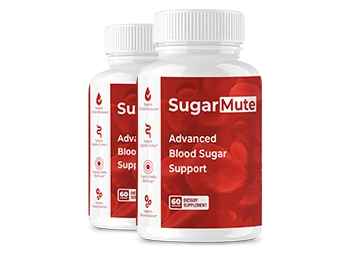In today’s health-conscious society, the search for sugar substitutes has become more than a passing trend—it’s a necessity. Excessive consumption of refined sugar has been linked to obesity, diabetes, cardiovascular disease, and other health issues. As a result, alternatives to sugar are continuously being introduced to the market. Among them, one product gaining attention is SugarMute.
SugarMute is marketed as a natural, health-forward sweetener designed to provide the sweetness people crave without the harmful side effects of conventional sugar. But how does it measure up? What are the real benefits, and what drawbacks should consumers consider before making the switch? This article provides a detailed exploration of SugarMute—its origins, benefits, disadvantages, and practical implications—so readers can make an informed decision.
What Is SugarMute?
SugarMute is a sugar alternative that blends plant-derived ingredients to replicate the taste of table sugar while reducing or eliminating the negative metabolic effects. Unlike artificial sweeteners such as aspartame or saccharin, which have faced criticism for potential health concerns and chemical aftertastes, SugarMute aims to strike a balance between natural origins and consumer satisfaction.
Its composition often includes a combination of stevia extract, erythritol, and other natural sweet compounds, although exact formulations may vary depending on the manufacturer. The goal is to deliver a product that tastes close to real sugar, maintains stability when heated, and is safe for everyday consumption.
The Rise of Sugar Alternatives
Before diving into the specifics of SugarMute, it’s helpful to understand the broader landscape. Global sugar consumption is staggering. The World Health Organization (WHO) recommends that adults limit free sugar intake to less than 10% of daily calories, ideally below 5%. However, average consumption in many countries far exceeds this threshold.
This has spurred demand for alternatives that can help reduce sugar intake without sacrificing taste. Products like stevia, monk fruit, and xylitol have made waves, but each comes with its own set of challenges. SugarMute enters this competitive field as a contender promising a smoother taste profile and better health outcomes.
Pros of SugarMute
1. Low Glycemic Impact
One of SugarMute’s strongest selling points is its low glycemic index (GI). Traditional sugar causes blood glucose levels to spike rapidly, placing stress on the pancreas and contributing to insulin resistance over time. SugarMute, by contrast, is designed to have minimal impact on blood sugar levels.
Why this matters:
-
People with diabetes can enjoy sweetened foods without severe glucose fluctuations.
-
It may reduce risks associated with metabolic syndrome.
-
Helps in maintaining steady energy levels, avoiding the “sugar crash” phenomenon.
2. Calorie Reduction
SugarMute typically contains far fewer calories than regular sugar. For individuals trying to lose weight or maintain a calorie deficit, this is a significant advantage. A teaspoon of table sugar packs about 16 calories, while SugarMute often contains zero to just a fraction of that amount.
Implication: Switching to SugarMute in beverages, desserts, and baked goods could potentially save hundreds of calories daily without compromising taste.
3. Dental Health Benefits
Refined sugar is notorious for fueling cavity-causing bacteria. SugarMute, on the other hand, is non-cariogenic—it doesn’t feed oral bacteria the way sugar does. Some of its components, such as erythritol, may even reduce plaque formation and improve oral health.
Outcome: Regular use could help reduce dental decay, making SugarMute a healthier choice for children and adults alike.
4. Natural Origins
Unlike synthetic sweeteners, SugarMute leans on plant-derived compounds like stevia. This appeals to consumers who are wary of artificial additives and want cleaner ingredient lists. The “natural” branding also places SugarMute in line with current wellness and organic food trends.
5. Versatility in Cooking and Baking
One of the major limitations of many sugar substitutes is their poor performance under heat. For instance, aspartame breaks down when exposed to high temperatures, making it unsuitable for baking. SugarMute is heat-stable, meaning it can be used in recipes ranging from cookies to sauces without losing sweetness or altering taste significantly.
6. Taste Profile
Some sugar alternatives suffer from a bitter or metallic aftertaste, which can discourage long-term use. SugarMute has been formulated to mimic the clean, sweet taste of cane sugar more closely. While individual preferences vary, many users report it tastes more natural and less “chemical” than other sweeteners.
7. Supports Weight Management
By reducing both caloric and glycemic load, SugarMute can be a useful tool in weight loss programs. It helps people transition away from sugar-heavy diets without feeling deprived, potentially improving long-term adherence to healthier eating habits.
Cons of SugarMute
While the advantages are noteworthy, no product is perfect. SugarMute also comes with limitations that need to be considered.
1. Digestive Issues
One of the most common complaints with sugar substitutes that contain sugar alcohols (like erythritol) is digestive discomfort. Consuming large amounts can lead to:
-
Bloating
-
Gas
-
Stomach cramps
-
Diarrhea
Although SugarMute tends to be better tolerated than some alternatives, sensitive individuals may still experience these side effects.
2. Not Entirely “Natural”
While marketed as natural, SugarMute often undergoes significant processing. For example, erythritol is typically produced through fermentation of glucose with yeast, and stevia leaves must be refined to extract their sweet compounds. Critics argue that calling it “natural” can be misleading, especially for purists who prefer whole-food sweeteners like honey or maple syrup.
3. Potential for Overconsumption
Because SugarMute is marketed as “healthier,” people may be tempted to consume more sweets overall, assuming they are guilt-free. This could backfire by encouraging poor dietary habits and reliance on hyper-sweetened foods rather than fostering balanced nutrition.
4. Taste Still Differs from Sugar
Although SugarMute comes close to mimicking sugar, it isn’t identical. Some people report subtle aftertastes, cooling sensations (from erythritol), or slight bitterness depending on the formulation. Taste sensitivity varies, and not everyone will find SugarMute to be an acceptable replacement.
5. Cost Factor
SugarMute tends to be more expensive than refined sugar. For households on tight budgets, the higher cost can be a barrier to making a permanent switch. In large-scale food production, this price difference can also limit its widespread adoption.
6. Limited Long-Term Research
Compared to sugar, which has been studied extensively (albeit mostly highlighting negative effects), SugarMute is relatively new. While its components are generally recognized as safe (GRAS), long-term human studies are limited. Questions remain about how consistent, lifelong use affects health beyond the digestive system.
7. Cultural and Culinary Acceptance
Sugar plays a symbolic role in many cultural traditions and cuisines. From baking family recipes to religious rituals, the taste and texture of real sugar are deeply ingrained. For some, replacing sugar with SugarMute may feel like losing authenticity in culinary experiences.
Who Should Use SugarMute?
1. People with Diabetes
SugarMute offers a safe way to enjoy sweet foods without blood sugar spikes, making it especially beneficial for diabetics seeking alternatives.
2. Weight-Conscious Individuals
Those on calorie-restricted diets can benefit from SugarMute as part of a broader strategy for reducing overall caloric intake.
3. Dental Health Enthusiasts
Families concerned about cavities, particularly for children, may find SugarMute to be a healthier option.
4. Health-Conscious Consumers
Anyone looking to reduce refined sugar intake for general wellness can adopt SugarMute as a supportive tool.
Who Might Want to Avoid SugarMute?
-
People with Sensitive Digestion – Those prone to bloating or gastrointestinal upset may not tolerate sugar alcohols well.
-
Budget-Conscious Shoppers – The higher price may not be practical for all households.
-
Culinary Traditionalists – Individuals who prioritize authentic taste and texture might find substitutes inadequate.
-
Those Concerned About Processing – If avoiding processed products is a priority, SugarMute may not align with personal values.
Practical Applications of SugarMute
In Beverages
From coffee to smoothies, SugarMute blends easily and provides sweetness without calories. Unlike some substitutes, it doesn’t leave a strong aftertaste, making it a popular choice for daily drinks.
In Baking
SugarMute’s heat stability makes it suitable for cakes, muffins, and cookies. However, because sugar also contributes to texture, browning, and moisture retention, adjustments in recipes may be necessary.
In Packaged Foods
SugarMute is increasingly used in protein bars, low-calorie ice creams, and “diet” snacks, broadening consumer access to sugar-free options.
In Everyday Cooking
Sauces, marinades, and dressings can benefit from SugarMute, allowing savory dishes to achieve balance without unnecessary sugar.
The Bigger Picture: Moderation Matters
It’s crucial to remember that no sugar substitute is a magic bullet. Over-reliance on sweeteners—natural or not—can perpetuate a preference for overly sweet foods. Nutrition experts generally encourage moderation and balanced diets rich in whole foods like fruits, vegetables, and whole grains. SugarMute can be a valuable tool, but it should be part of a broader effort to cultivate healthier eating habits.
Conclusion
SugarMute represents a promising alternative in the ongoing battle against excessive sugar consumption. Its benefits include low caloric content, minimal impact on blood glucose, improved dental outcomes, and versatility in cooking. However, drawbacks such as digestive discomfort, higher costs, and lingering taste differences should not be overlooked.
For many, SugarMute provides a middle ground: a way to reduce sugar intake without fully sacrificing sweetness. But like all dietary choices, it works best when paired with mindfulness, moderation, and a commitment to overall health.




Leave a Reply